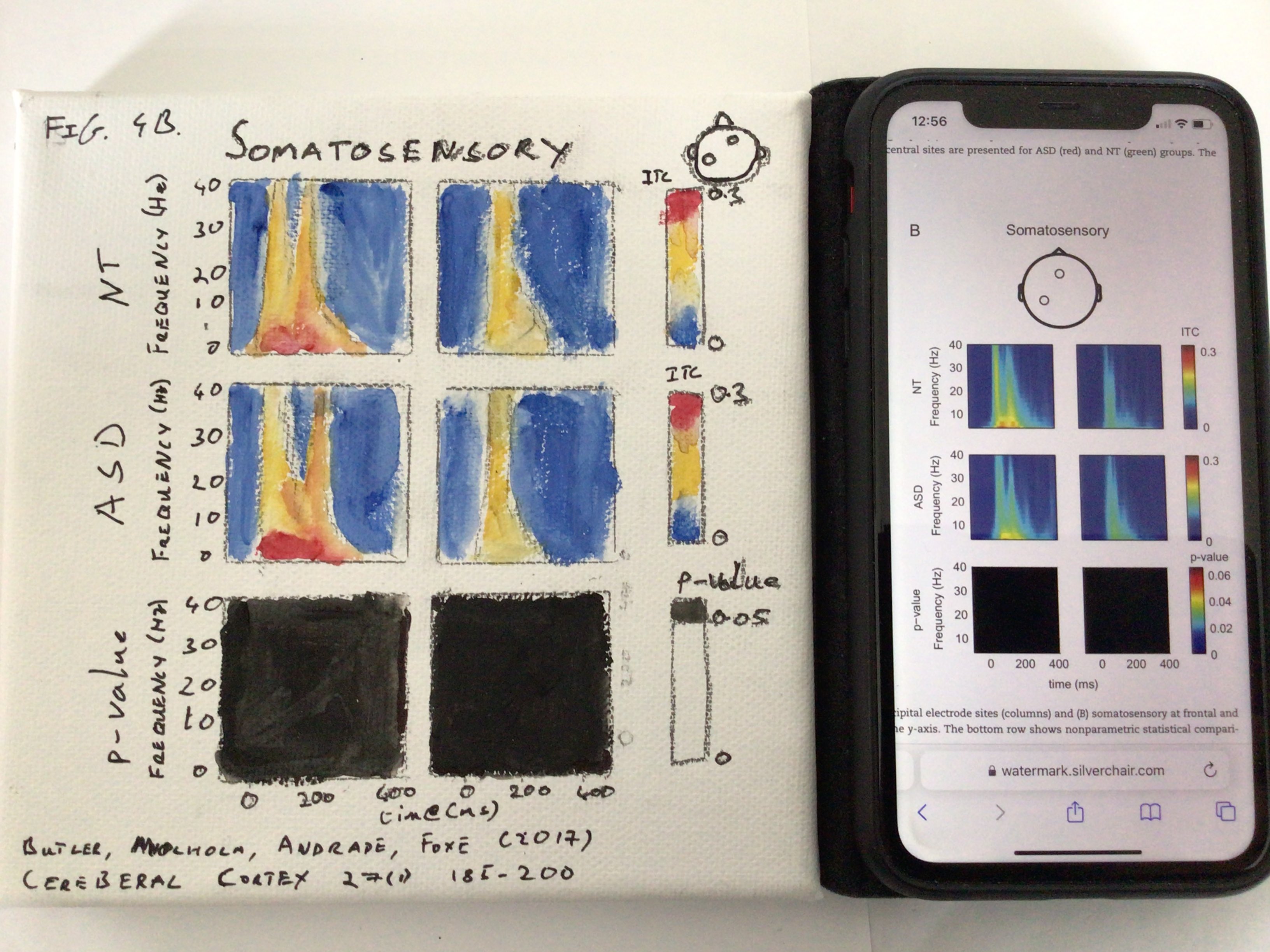Abstract
An emerging neuropathological theory of Autism, referred to here as the neural unreliability thesis, proposes greater varability in moment-to-moment cortical representation of environmental events, such that the system shows general instability in its impulse response function. Leading evidence for this thesis derives from functional neuroimaging, a methodology ill-suited for detailed assessment of sensory transmission dynamics occurring at the millisecond scale. Electrophysiological assessments of this thesis, however, are sparse and unconvincing. We conducted detailed examination of visual and somatosensory evoked activity using high-density electrical mapping in individuals with autism (N = 20) and precisely matched neurotypical controls (N = 20), recording large numbers of trials that allowed for exhaustive timefrequency analyses at the single-trial level. Measures of intertrial coherence and event-related spectral perturbation revealed no convincing evidence for an unreliability account of sensory responsivity in autism. Indeed, results point to robust, highly reproducible response functions marked for their exceedingly close correspondence to those in neurotypical controls.
And my badly painted version of the Figure 4B:

